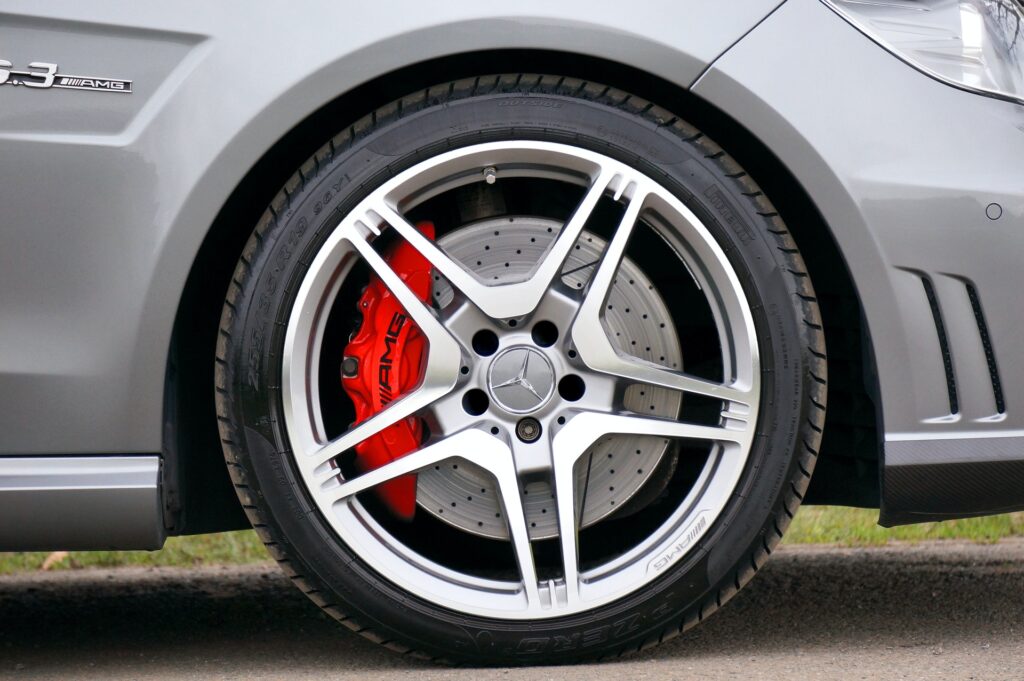Summer heat is not always our friend. Keeping your tires properly inflated is one of the best things you can do to reduce wear and tear on your tires and save yourself money. The increased weight loads and higher speeds cars travel during summer will strain your tires. Proper tire inflation is crucial to vehicle maintenance and how you feel while driving. If you don’t know how to check them, New Image Towing has you covered.
Tire Pressure and Summer Heat Rise Together
The main reason to check your car’s tire pressure is to ensure that it is at the right level for optimum performance, safety, and fuel economy. But with summer here and temperatures rising, it’s important to note that the two rise together. The higher the temperature in your tires, the higher the pressure inside them will be. This is why you should check your tire pressure more often during the summer months — especially if you live in an area that gets hot like Atlanta. It’s not just heat that can cause this phenomenon; sunlight also plays a role by breaking down the rubber in your tires over time.
Proper Tire Inflation Is Crucial To Car Maintenance
The appropriate amount of air pressure varies depending on several factors:
- Vehicle type (car or truck).
- Load capacity (how heavy your car or truck is).
- Speed capability (how fast your vehicle can travel).
- Road conditions (smooth or rough).
Tire pressure is essential for your vehicle’s safety, handling, and fuel economy. You should check it regularly, especially when you’ve recently driven in different conditions. It’s best to check your tire pressure when the tires are cool. Also if the ambient temperature is 60 degrees F or above. If you don’t have a pressure gauge, you can inflate tires to 35 psi (pounds per square inch).
Underinflated Tires
Underinflated tires can increase rolling resistance, which reduces fuel economy by up to 3 percent. They also make your car harder to handle, which could lead to an accident. Check your tire pressure at least once a month and before long trips when temperatures change dramatically.
Summer is here, and with it comes the danger of underinflated tires. Underinflated tires can lead to dangerous situations on the road, so it’s essential to be aware of the safety risks they present.
These tires can be dangerous and compromise your ability to stop quickly or steer appropriately during an emergency. Underinflated tires also may lead to premature wear and tear on your vehicle, causing you to spend more money on repairs down the road.
Underinflated tires also pose a threat to other drivers on the road. If your vehicle has underinflated tires, it could cause you to lose control and cause an accident that could injure or kill someone else on the road.
Overinflated Tires
When tires are overinflated, they will wear out more quickly because the excess air pressure puts extra stress on the tire walls. An overinflated tire also runs hotter than one adequately inflated so that the treads may wear prematurely on the inside edges of the tread blocks (more commonly known as cupping). Too much pressure also reduces traction by increasing tire flexing during cornering, which improves rolling resistance and causes more heat buildup in the tread compound.
Check Your Tire Pressure Before Driving
In most cases, tires lose air over time. To ensure that your tires are at the proper level, it’s best to check them at least once a month during the summer. When you check your tire pressure, use an accurate gauge because it can vary from manufacturer to manufacturer. If you find that your tires are low on air, add more using an air compressor or portable pump. Once you have added enough air into each tire, recheck the pressure. You may need to repeat this process several times until all of your tires are properly inflated.
How To Check Tire Pressure
Checking your tire pressure is a simple process that requires nothing more than a pump kit (or a gauge) and a few minutes. The best way to check your tire’s pressure is to take it from the center of the tread and move it outward toward the sidewall, and this will ensure consistency across all tires.
Most manufacturers recommend checking your tire pressure with an air gauge every month, especially if you’ve been driving in inclement weather or have recently added weight to your vehicle (such as cargo or passengers).
If you want to avoid guessing when it comes time for a change in season, invest in an automatic tire inflator/deflator that automatically adjusts based on temperature changes. This means no more guessing whether your tires are at the right pressure — plug them into your vehicle and let them do their thing!
Call Us Today
Now you know what to look for to ensure your tires are up to par to stay safe this summer. Here at New Image Towing, we want everyone to have a safe and happy summer season! Don’t forget, keep your tires filled and balanced, rotate them every 5k miles, and drive safe throughout the season. If you find yourself broken down on the side of the road and need assistance, be sure to call us today! We are happy to help 24/7.
